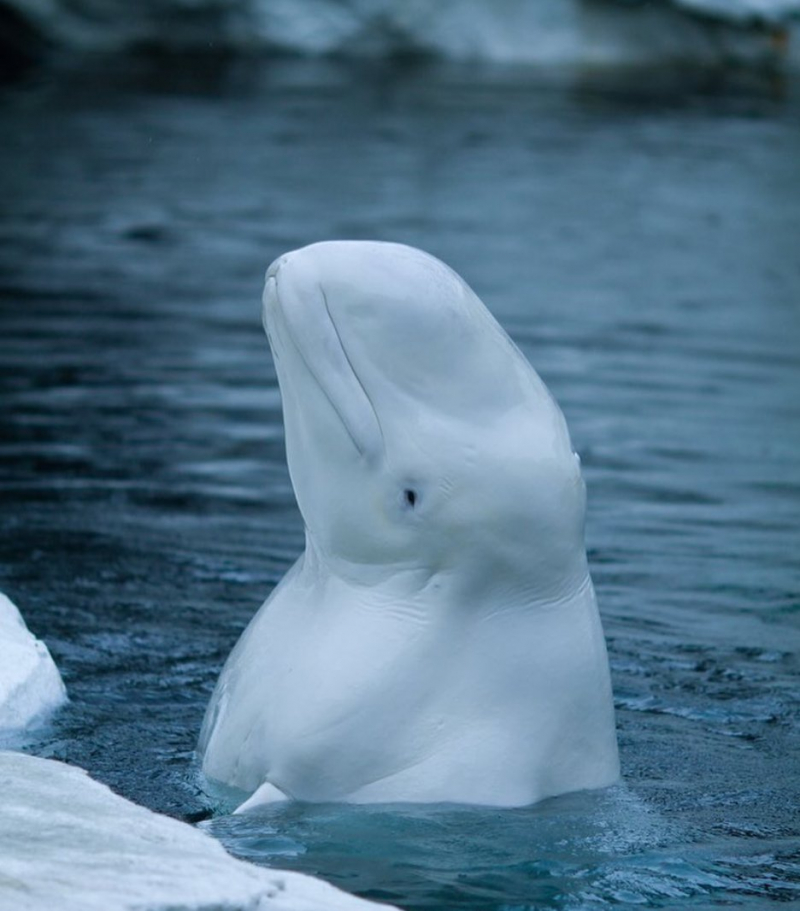The beluga’s nickname isn’t as mean as it sounds
While the term "melonheads" may seem like it was coined by a middle school bully, there is some scientific justification for it. Belugas are frequently called "melonheads." All toothed whale species have a melon, which is the name given to the bulbous protrusion that fills the whale's forehead. The fatty organ may be seen morphing during whale vocalizations, which is thought to help in echolocation, a technique in which animals utilize the echoes of their sounds to locate and identify objects.
Belugas don't have vocal cords as humans do, despite being extremely noisy animals. The sound is instead focused through a lump of fatty tissue at the front of the skull known as the "melon" after being produced by the nasal air sacs and phonic lips. This organ, which is present in all toothed whales, may aid in the transmission of sound waves from the whale's head into the water.
Although these fatty melons are common in the skulls of toothed whales, a beluga's melon is much bigger, more bulbous, and more noticeable than in other species. Additionally, belugas may alter the form of their melons, which gives them more control when they target or alter their outgoing noises, in contrast to other cetaceans, which is one of the interesting facts about Beluga Wales.













